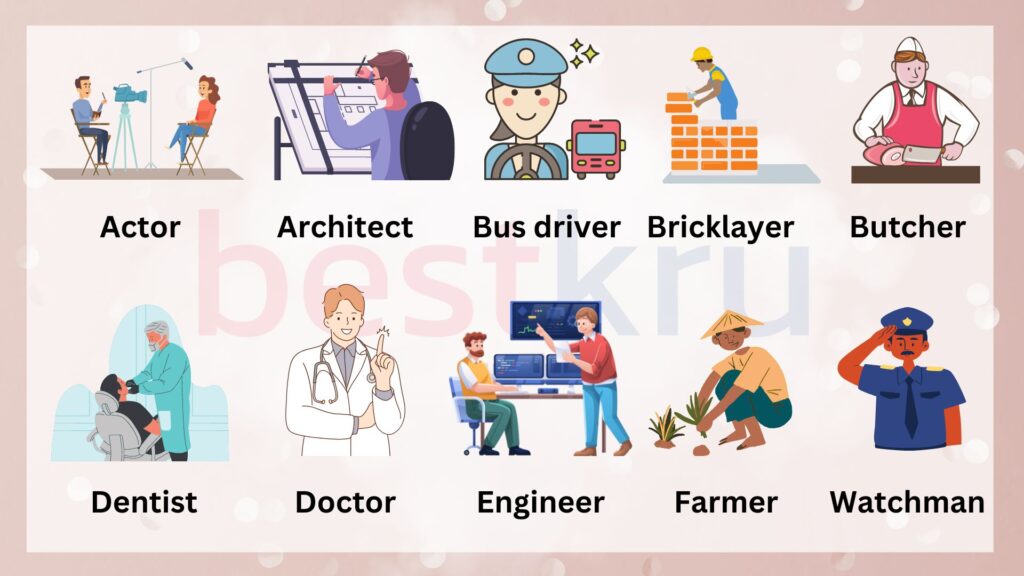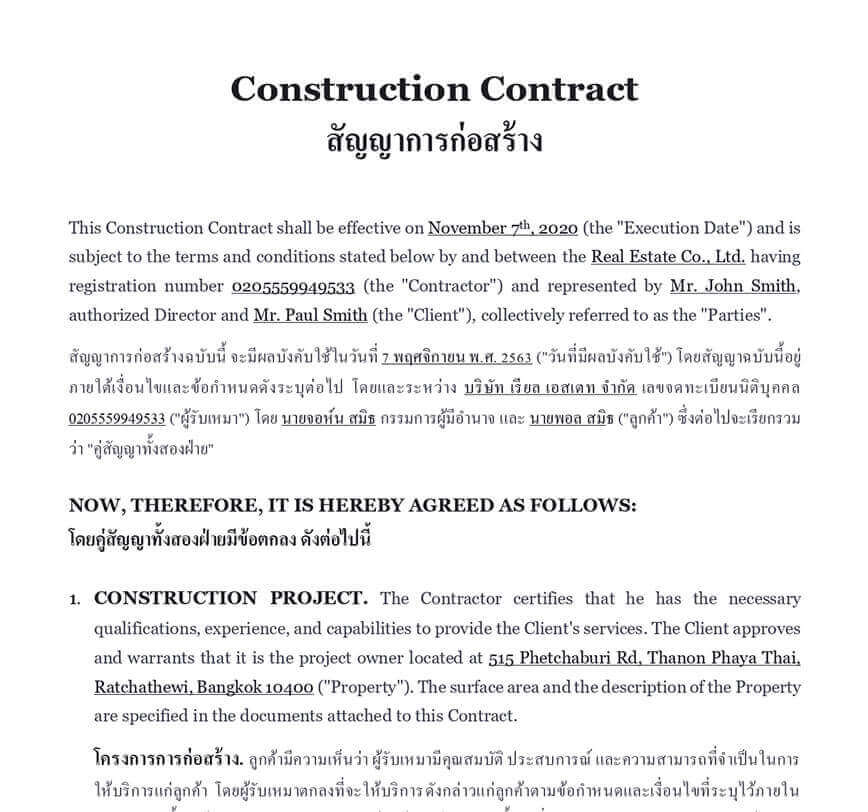ผู้รับจ้างภาษาอังกฤษ: เคล็ดลับสำหรับความสำเร็จในการสื่อสารและทำธุรกิจ
ผู้รับจ้างภาษาอังกฤษ: เคล็ดลับสำหรับความสำเร็จในการสื่อสารและทำธุรกิจ
อาชีพรับจ้าง ภาษาอังกฤษ Job – ศัพท์ ภาษา อังกฤษ – เรียน ภาษา อังกฤษ ออนไลน์ – Geteng123
Keywords searched by users: ผู้ รับจ้าง ภาษา อังกฤษ ผู้ว่าจ้าง ภาษาอังกฤษ, บริษัทผู้ว่าจ้าง ภาษาอังกฤษ, ผู้รับจ้าง ภาษาจีน, ผู้ว่าจ้างโครงการ ภาษาอังกฤษ, สัญญาว่าจ้าง ภาษาอังกฤษ, ผู้ให้บริการ ภาษาอังกฤษ, ลูกจ้าง ภาษาอังกฤษ, จัดจ้าง ภาษาอังกฤษ
Understanding and Engaging with Contract Workers in English
Contract workers, known as “ผู้ รับจ้าง” in Thai, play a crucial role in various industries. Whether you are a hiring entity, a contracting company, or a freelancer, navigating the landscape of contract work in English is essential for effective collaboration and successful project outcomes. This comprehensive guide will delve into the meaning, roles, selection criteria, skills, communication strategies, quality control, agreements, performance evaluation, and available resources related to contract work in the English language.
1. ความหมายและบทบาท (Meaning and Roles)
Contract workers, often referred to as “ผู้ รับจ้าง” in Thai, are individuals or entities hired on a temporary basis to fulfill specific tasks or projects. These workers can be freelancers, independent contractors, or employees of contracting companies. Their roles vary based on the nature of the work and the agreements established between the hiring entity and the contractor.
In the context of English language services, “ผู้ รับจ้าง ภาษา อังกฤษ” refers to individuals or companies providing English language-related services. This can include translation, interpretation, content creation, language training, and more.
2. วิธีการเลือกผู้รับจ้าง (Choosing a Contractor)
Choosing the right contractor is crucial for the success of any project. Here are steps to guide you through the selection process:
- Define Your Needs: Clearly outline the scope of work and the skills required.
- Research: Explore platforms, websites, and recommendations to find potential contractors.
- Review Portfolios: Examine past work, experience, and expertise of potential candidates or companies.
- Check References: Contact previous clients or employers to gather insights into the contractor’s performance.
- Communicate Clearly: Discuss expectations, timelines, and any specific requirements before finalizing the contract.
3. ทักษะและคุณสมบัติที่สำคัญ (Key Skills and Qualifications)
Contractors in the English language domain should possess specific skills and qualifications. These may include:
- Language Proficiency: A strong command of the English language, including written and spoken skills.
- Specialized Knowledge: Expertise in the specific area, such as legal, technical, or creative writing.
- Communication Skills: The ability to effectively communicate ideas and concepts in English.
- Adaptability: Flexibility to adapt to different projects and industries.
- Technology Proficiency: Familiarity with tools and software relevant to the task.
4. การสื่อสารในการทำงาน (Communication in the Working Relationship)
Clear and effective communication is the cornerstone of successful collaborations. When working with English language contractors, consider the following communication strategies:
- Establish Clear Channels: Use reliable communication tools and platforms to ensure a smooth flow of information.
- Set Expectations: Clearly define project milestones, deadlines, and any specific communication protocols.
- Regular Updates: Maintain regular communication to provide updates on project progress and address any concerns promptly.
- Language Considerations: Be mindful of language nuances and ensure that instructions and feedback are clear and easily understood.
5. การตรวจสอบคุณภาพงาน (Quality Control)
Ensuring the quality of work delivered by a contractor is vital for project success. Implement the following quality control measures:
- Define Quality Standards: Clearly outline your expectations regarding the quality of deliverables.
- Feedback Loops: Establish a feedback system for continuous improvement.
- Quality Checks: Conduct periodic reviews of work to identify and address any issues promptly.
- Communication of Changes: Communicate any changes or revisions clearly to avoid misunderstandings.
6. ข้อผูกพันและสัญญา (Agreements and Contracts)
Formalizing the working relationship through agreements and contracts is essential. Include the following elements in your contracts:
- Scope of Work: Clearly define the tasks, responsibilities, and deliverables expected from the contractor.
- Timeline: Specify project timelines, milestones, and deadlines.
- Payment Terms: Outline the payment structure, including rates, invoicing, and payment schedule.
- Confidentiality: Include clauses regarding the confidentiality of information and intellectual property.
7. การประเมินผลและการแก้ไขปัญหา (Performance Evaluation and Issue Resolution)
Regularly evaluate the performance of the contractor and have mechanisms in place to address any issues that may arise:
- Performance Metrics: Define key performance indicators (KPIs) to assess the contractor’s effectiveness.
- Feedback Sessions: Schedule periodic feedback sessions to discuss strengths, areas for improvement, and any concerns.
- Issue Resolution: Establish a process for addressing and resolving conflicts or performance issues promptly.
- Contract Review: Periodically review the contract to ensure it aligns with the evolving needs of the project.
8. แหล่งข้อมูลและอรรถประโยชน์ (Resources and Benefits)
Explore additional resources and benefits available to both hiring entities and contractors:
- Online Platforms: Utilize online platforms to find potential contracts or work opportunities.
- Professional Networks: Build and leverage professional networks to connect with other industry players.
- Training and Development: Invest in continuous learning and development to enhance skills and stay updated with industry trends.
- Legal Guidance: Seek legal advice to ensure contracts comply with relevant laws and regulations.
ผู้ว่าจ้าง ภาษาอังกฤษ, บริษัทผู้ว่าจ้าง ภาษาอังกฤษ, ผู้รับจ้าง ภาษาจีน, ผู้ว่าจ้างโครงการ ภาษาอังกฤษ, สัญญาว่าจ้าง ภาษาอังกฤษ, ผู้ให้บริการ ภาษาอังกฤษ, ลูกจ้าง ภาษาอังกฤษ, จัดจ้าง ภาษาอังกฤษ
These terms are commonly used in the context of English language contracting. Understanding their nuances and implications is crucial for effective communication and collaboration.
FAQs (Frequently Asked Questions)
Q1: What is the difference between a freelancer and an independent contractor?
A1: While both terms are often used interchangeably, there can be distinctions. A freelancer typically works on a project-by-project basis and may have multiple clients simultaneously. An independent contractor, on the other hand, may work on a more extended contract with a single client and may be responsible for a specific set of tasks or deliverables.
Q2: How can I ensure the confidentiality of sensitive information when working with a contractor?
A2: Include a confidentiality clause in the contract, clearly outlining the contractor’s responsibility to maintain the confidentiality of any sensitive information or intellectual property shared during the course of the project. Additionally, use secure communication channels and restrict access to confidential data only to those directly involved in the project.
Q3: What should I do if there are disagreements or issues with the contractor’s performance?
A3: Address issues promptly through open communication. If conflicts persist, refer to the conflict resolution mechanisms outlined in the contract. This may involve mediation or arbitration. If the issues are severe and persistent, legal advice may be sought to explore potential solutions.
Q4: Are there specific legal considerations when hiring international contractors for English language services?
A4: Yes, it’s essential to consider legal aspects such as tax implications, work permits, and compliance with international business laws. Consulting with legal professionals who specialize in international contracts can help ensure that your agreements align with relevant regulations.
Q5: What are some recommended online platforms for finding English language contractors?
A5: Popular online platforms for finding English language contractors include Upwork, Freelancer, and Fiverr. These platforms allow you to browse profiles, review portfolios, and connect with contractors based on your specific needs.
By following these guidelines and understanding the nuances of contracting in the English language, both hiring entities and contractors can establish mutually beneficial relationships that contribute to project success.
Disclaimer: This guide provides general information and should not be considered legal advice. For specific legal concerns, consult with a qualified legal professional.
Categories: รายละเอียด 15 ผู้ รับจ้าง ภาษา อังกฤษ

(n) employee, See also: hireling, Syn. ลูกจ้าง, Ant. ผู้จ้าง, Example: ภาคเอกชนเป็นผู้รับจ้างทำการสำรวจให้แก่ภาครัฐ
ผู้ว่าจ้าง ภาษาอังกฤษ
ข้อมูลเกี่ยวกับ “ผู้ว่าจ้าง ภาษาอังกฤษ”
ในโลกธุรกิจและการทำงานวันนี้ คำว่า “ผู้ว่าจ้าง” เป็นคำที่มีความสำคัญมาก เพราะเป็นบุคคลหรือองค์กรที่มีความรับผิดชอบที่จะจ้างคนอื่นเข้ามาทำงานให้กับตนเองหรือองค์กรของตน เป็นที่รู้จักในการสร้างงานและเสริมสร้างเศรษฐกิจของประเทศ ในภาษาอังกฤษคำแปลของ “ผู้ว่าจ้าง” คือ “Employer” ซึ่งมีความหมายเดียวกันกับคำว่า “ผู้จ้างงาน” หรือ “นายจ้าง” ในภาษาไทย ซึ่งเป็นคำที่ใช้ในแง่ของคนหรือองค์กรที่มีอำนาจในการจัดการงานและบุคลากรต่างๆ ในองค์กรหรือกิจการต่างๆ โดยทั่วไปผู้ว่าจ้างมักจะมีหน้าที่และความรับผิดชอบในการจ่ายค่าจ้าง สวัสดิการ และสภาพแวดล้อมทำงานที่ดีให้กับลูกจ้างของตน
คำว่า “ผู้ว่าจ้าง” ภาษาอังกฤษ: “Employer”
ในทางปฏิบัติ เมื่อพูดถึงคำว่า “ผู้ว่าจ้าง” ภาษาอังกฤษ เรามักจะพบคำนี้ในเอกสารทางกฎหมาย เช่น สัญญาจ้างงาน หรือในการสื่อสารทางธุรกิจทั่วไป เพื่ออธิบายความรับผิดชอบทางกฎหมายของบุคคลหรือองค์กรที่มีต่อลูกจ้างหรือคนที่ได้รับการจ้างงาน อีกทั้งยังเป็นคำที่เกี่ยวข้องกับนโยบายและกฎระเบียบของการทำงานในองค์กรต่างๆ ที่มุ่งเน้นไปที่การคุ้มครองสิทธิและความปลอดภัยของพนักงานในการทำงาน
การเป็น “ผู้ว่าจ้าง” มีความสำคัญอย่างมากในทุกภาคส่วน ไม่ว่าจะเป็นในภาคธุรกิจ เศรษฐกิจ เครื่องหมายการค้า หรือในด้านของการเมือง ซึ่งมีบทบาทสำคัญในการสร้างงานและสร้างโอกาสให้แก่คนหลายๆ คน นอกจากนี้ยังมีหน้าที่ที่จะสร้างสัมพันธ์และบริหารจัดการกับคนงานในองค์กร เพื่อให้งานดำเนินไปอย่างมีประสิทธิภาพและความสำเร็จ
คำว่า “ผู้ว่าจ้าง” เป็นคำที่มีความสำคัญและมีความหมายหลากหลายขึ้นอยู่กับแต่ละวงการ การทำงาน หรือที่มาของคำว่า “ผู้ว่าจ้าง” อาจมีความแตกต่างกันไปในบางกรณี แต่ทั่วๆ ไปแล้วคำนี้มักจะมีความหมายที่เกี่ยวข้องกับคนหรือองค์กรที่มีอำนาจในการจ้างคนเพื่อทำงานตามคำสั่งหรือข้อกำหนดต่างๆ
FAQ (คำถามที่พบบ่อย)
-
ผู้ว่าจ้างคือใคร?
- ผู้ว่าจ้างคือบุคคลหรือองค์กรที่มีความรับผิดชอบที่จะจ้างคนอื่นเข้ามาทำงานให้กับตนเองหรือองค์กรของตน ในภาษาอังกฤษคำแปลของ “ผู้ว่าจ้าง” คือ “Employer” ซึ่งมีความหมายเดียวกันกับคำว่า “ผู้จ้างงาน” หรือ “นายจ้าง” ในภาษาไทย
-
ผู้ว่าจ้างมีหน้าที่อะไรบ้าง?
- หน้าที่ของผู้ว่าจ้างรวมถึงการจ่ายค่าจ้าง การจัดการสวัสดิการและสภาพแวดล้อมทำงานให้กับลูกจ้าง และมีความรับผิดชอบต่อกฎระเบียบและนโยบายในการทำงานในองค์กร
-
บทบาทของผู้ว่าจ้างที่สำคัญอย่างไร?
- ผู้ว่าจ้างมีบทบาทสำคัญในการสร้างงานและสร้างโอกาสให้แก่คนหลายๆ คน และมีหน้าที่ในการสร้างสัมพันธ์และบริหารจัดการกับคนงานในองค์กร เพื่อให้งานดำเนินไปอย่างมีประสิทธิภาพและความสำเร็จ
-
ผู้ว่าจ้างมีความสำคัญอย่างไรในทางธุรกิจ?
- ผู้ว่าจ้างมีบทบาทสำคัญในการเป็นผู้บริหารและประมาณค่าที่สำคัญของทรัพยากรมนุษย์ โดยการจัดการและสร้างสภาพแวดล้อมทำงานที่ดีสำหรับลูกจ้าง เป็นปัจจัยสำคัญที่มีผลต่อผลผลิตและความสำเร็จของธุรกิจ
ผู้ว่าจ้างเป็นบุคคลหรือองค์กรที่มีบทบาทและความสำคัญในการจัดการและพัฒนาทรัพยากรมนุษย์ในทุกๆ ด้าน การเข้าใจและการรับรู้ถึงคำว่า “ผู้ว่าจ้าง” ภาษาอังกฤษ เป็นสิ่งสำคัญที่จะเสริมสร้างความรู้และความเข้าใจในการทำงานและสังคมของเราอย่างถ่องแท้และเหมาะสมในสมัยปัจจุบัน
หวังว่าบทความนี้จะเป็นประโยชน์และเสริมความรู้เกี่ยวกับคำว่า “ผู้ว่าจ้าง” ภาษาอังกฤษให้มากขึ้นสำหรับผู้ที่สนใจและมีความต้องการในเรื่องนี้ในชีวิตประจำวันของคุณ
โดยสรุป ผู้ว่าจ้างเป็นคำศัพท์ที่มีความหมายที่สำคัญและมีอิทธิพลในการจัดการและการดำเนินงานในหลายๆ ด้าน และมีบทบาทสำคัญในการสร้างงาน โอกาสและพัฒนาทรัพยากรมนุษย์ในสังคมและธุรกิจทั่วๆ ไป
ผู้เขียน: (Your Name)
บริษัทผู้ว่าจ้าง ภาษาอังกฤษ
บริษัทผู้ว่าจ้าง ภาษาอังกฤษ: A Comprehensive Guide
Introduction
In the dynamic business landscape of Thailand, the term “บริษัทผู้ว่าจ้าง ภาษาอังกฤษ” holds significant importance. Translated as “Contracting Company English,” this term encompasses various aspects related to companies engaging in contractual agreements and negotiations, often conducted in the English language. This article aims to provide a comprehensive guide, offering detailed information and explaining specific concepts related to บริษัทผู้ว่าจ้าง ภาษาอังกฤษ.
Understanding บริษัทผู้ว่าจ้าง ภาษาอังกฤษ
-
Definition and Scope
บริษัทผู้ว่าจ้าง ภาษาอังกฤษ refers to companies that engage in contracting services and negotiations using the English language. This is particularly common in international business transactions, where English serves as a global business language. These companies play a crucial role in facilitating communication and ensuring clarity in contractual agreements. -
Importance in International Business
English is widely recognized as the language of international business. Companies in Thailand, aiming to participate in the global market, often conduct their contractual affairs in English. This ensures that agreements are universally understood, minimizing the risk of misinterpretation and legal complications. -
Key Concepts and Terminology
To effectively navigate the realm of บริษัทผู้ว่าจ้าง ภาษาอังกฤษ, it is essential to be familiar with key concepts and terminology. This includes understanding common contractual terms, legal implications, and negotiation strategies conducted in English.
In-Depth Information on บริษัทผู้ว่าจ้าง ภาษาอังกฤษ
-
Legal Framework
Contracting in English involves adherence to legal frameworks and standards. Companies must be aware of the legal implications of their contracts, including jurisdictional issues and the enforceability of agreements. Seeking legal counsel with expertise in international business law is advisable. -
Negotiation Strategies
Effective negotiation is a cornerstone of successful contracting. Companies engaging in บริษัทผู้ว่าจ้าง ภาษาอังกฤษ should develop robust negotiation strategies, considering cultural nuances and differences in business practices. This ensures a smooth and mutually beneficial negotiation process. -
Documenting Contracts
Accurate documentation is critical in contractual agreements. Companies must pay meticulous attention to drafting contracts in English, ensuring clarity, precision, and completeness. This includes defining the rights and obligations of each party, specifying terms and conditions, and incorporating dispute resolution mechanisms. -
Cultural Sensitivity
English may be a common language, but cultural differences can still impact communication. Companies must be culturally sensitive, understanding how cultural nuances can influence the interpretation of language. This awareness contributes to building strong and respectful business relationships.
FAQs (Frequently Asked Questions)
Q1: Why is English commonly used in business contracts in Thailand?
A1: English is a global business language, facilitating communication and understanding among international parties. Its widespread use enhances the accessibility and enforceability of contracts in the global market.
Q2: Are there any legal requirements for using English in contracts?
A2: While there is no legal mandate for using English, it is a practical choice for international transactions. However, companies must ensure that contracts comply with relevant legal standards and are enforceable in the chosen jurisdiction.
Q3: How can companies enhance their English contracting capabilities?
A3: Companies can enhance their capabilities by investing in language training for employees, seeking legal advice, and staying updated on international business practices. Networking with experienced professionals in the field also proves beneficial.
Q4: What are the common challenges in บริษัทผู้ว่าจ้าง ภาษาอังกฤษ?
A4: Common challenges include language barriers, cultural differences, and the need for a nuanced understanding of legal and business terminology in English. Overcoming these challenges requires a holistic approach, combining linguistic proficiency with cultural competence.
Conclusion
In conclusion, บริษัทผู้ว่าจ้าง ภาษาอังกฤษ plays a pivotal role in the internationalization of Thai businesses. This comprehensive guide has delved into the definition, importance, and key concepts associated with companies engaging in contractual activities in English. Understanding the legal framework, adopting effective negotiation strategies, meticulous documentation, and cultural sensitivity are essential components for success in this realm. As businesses continue to expand globally, the proficiency in บริษัทผู้ว่าจ้าง ภาษาอังกฤษ becomes increasingly crucial for sustainable growth and success in the international market.
Reference Materials:
แบ่งปัน 32 ผู้ รับจ้าง ภาษา อังกฤษ





See more here: cacanh24.com
Learn more about the topic ผู้ รับจ้าง ภาษา อังกฤษ.
- ผู้รับจ้าง แปลว่าอะไร ดูความหมาย ตัวอย่างประโยค หมายความว่า …
- -ผู้รับจ้าง- แปลว่าอะไร ดูความหมาย ตัวอย่างประโยค หมายความว่า …
- คำว่า ผู้รับจ้าง และ ผู้ว่าจ้าง ภาษาอังกฤษ ใช้คำว่าอะไรคะ
- ผู้รับจ้าง – คำแปลของภาษาอังกฤษ – พจนานุกรม bab.la
- ผู้รับจ้าง ภาษาอังกฤษ – พจนานุกรมไทย-อังกฤษ
- ผู้รับจ้าง – ภาษาอังกฤษ แปล ความหมาย – Thai2English Dictionary
See more: https://cacanh24.com/category/local blog





